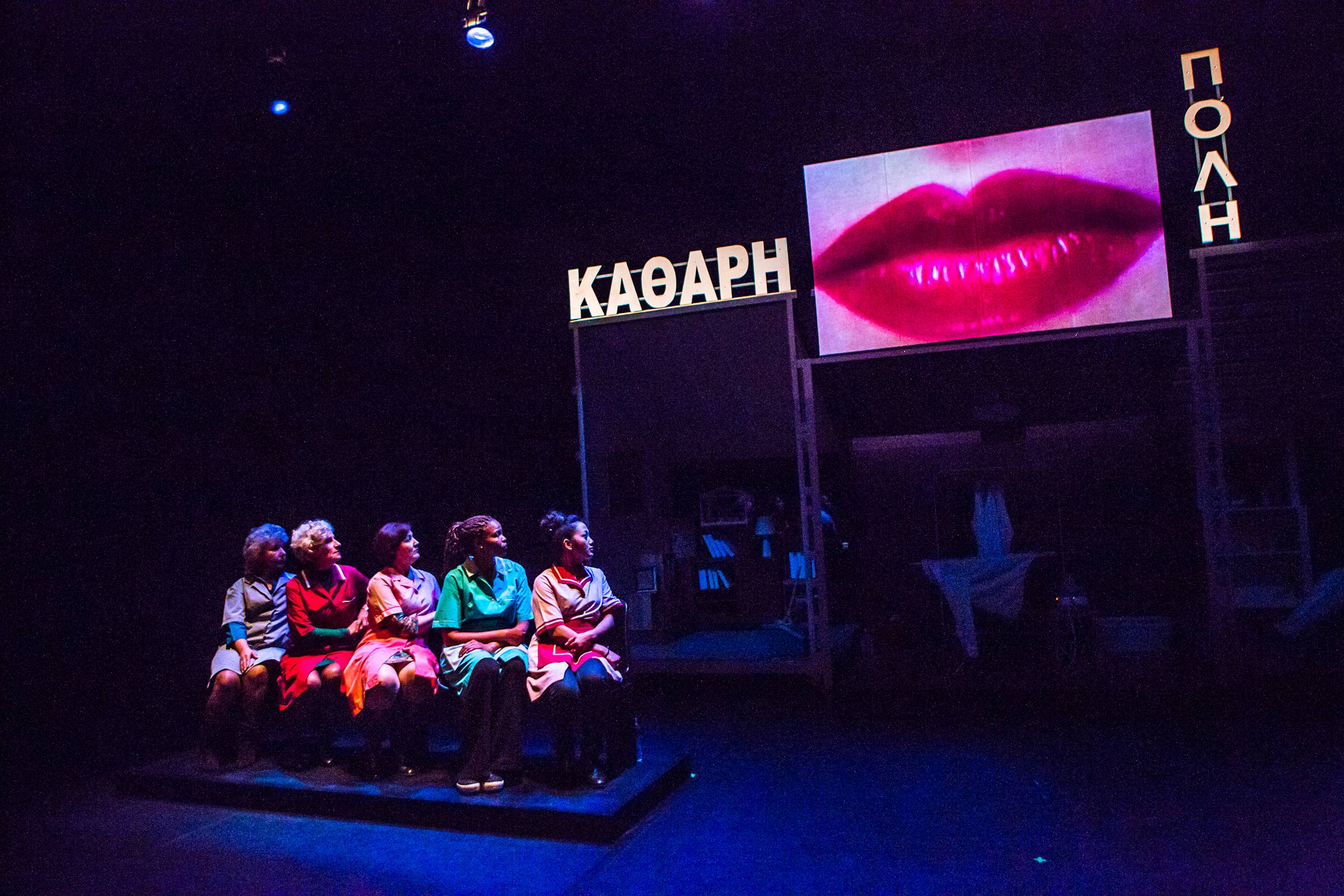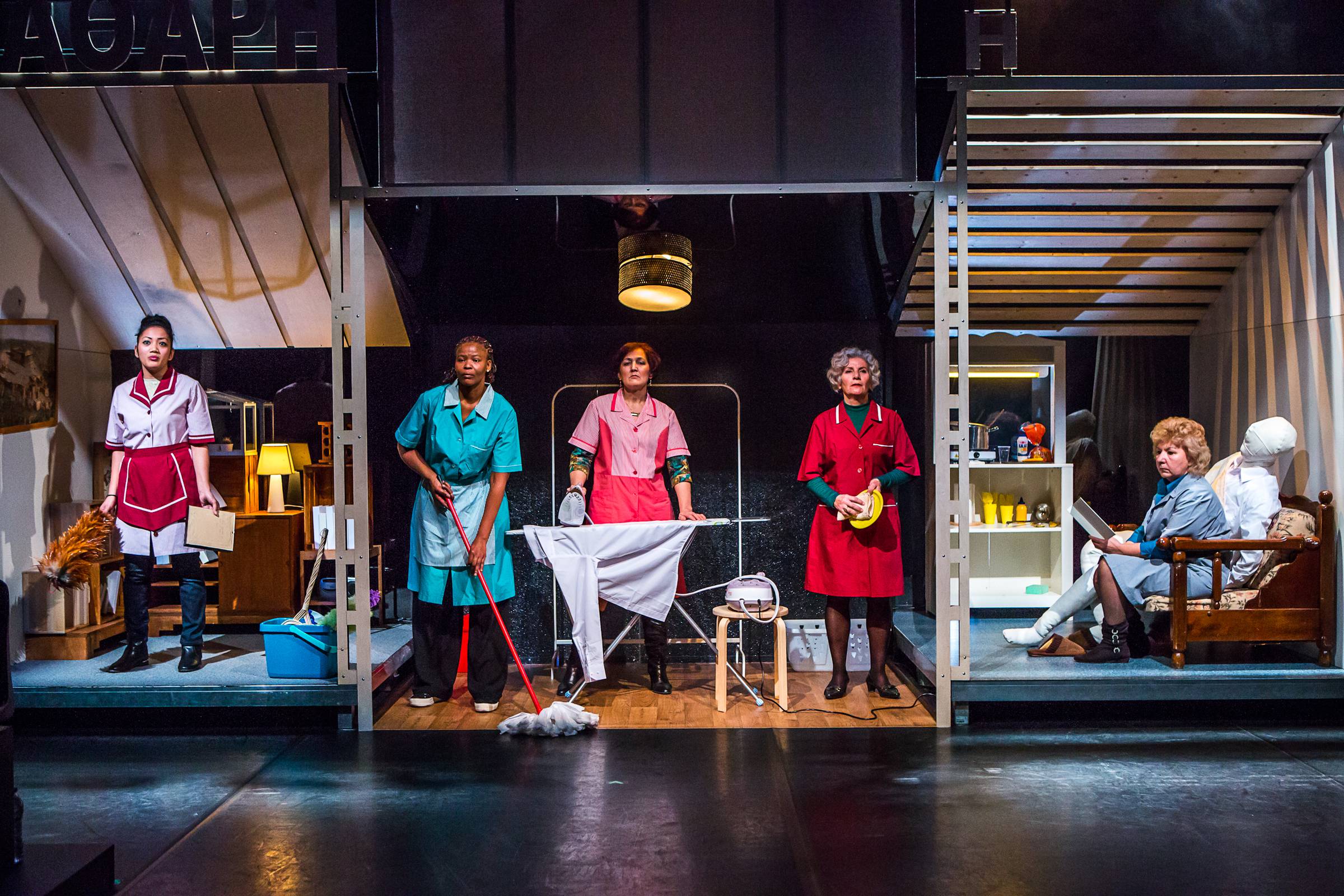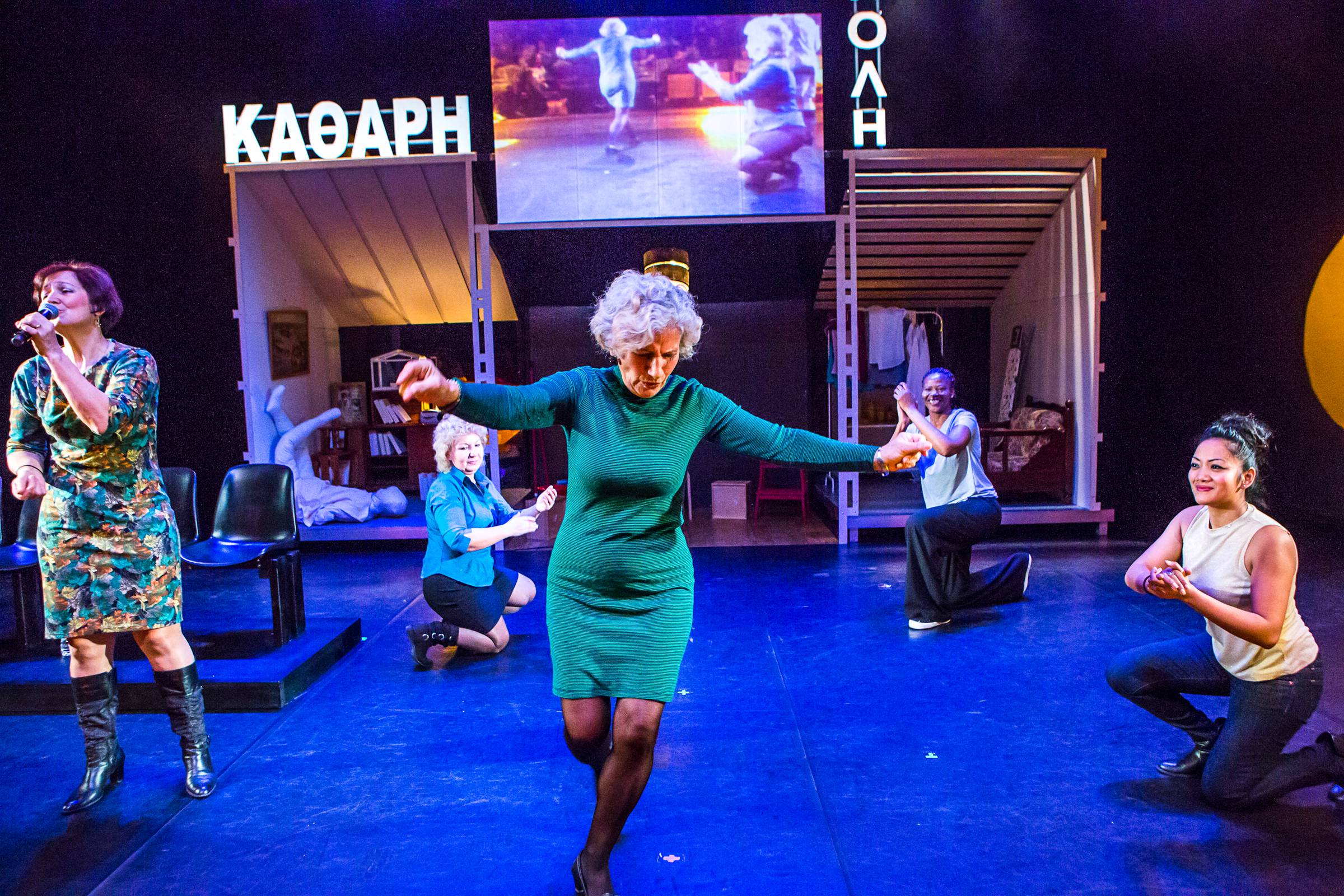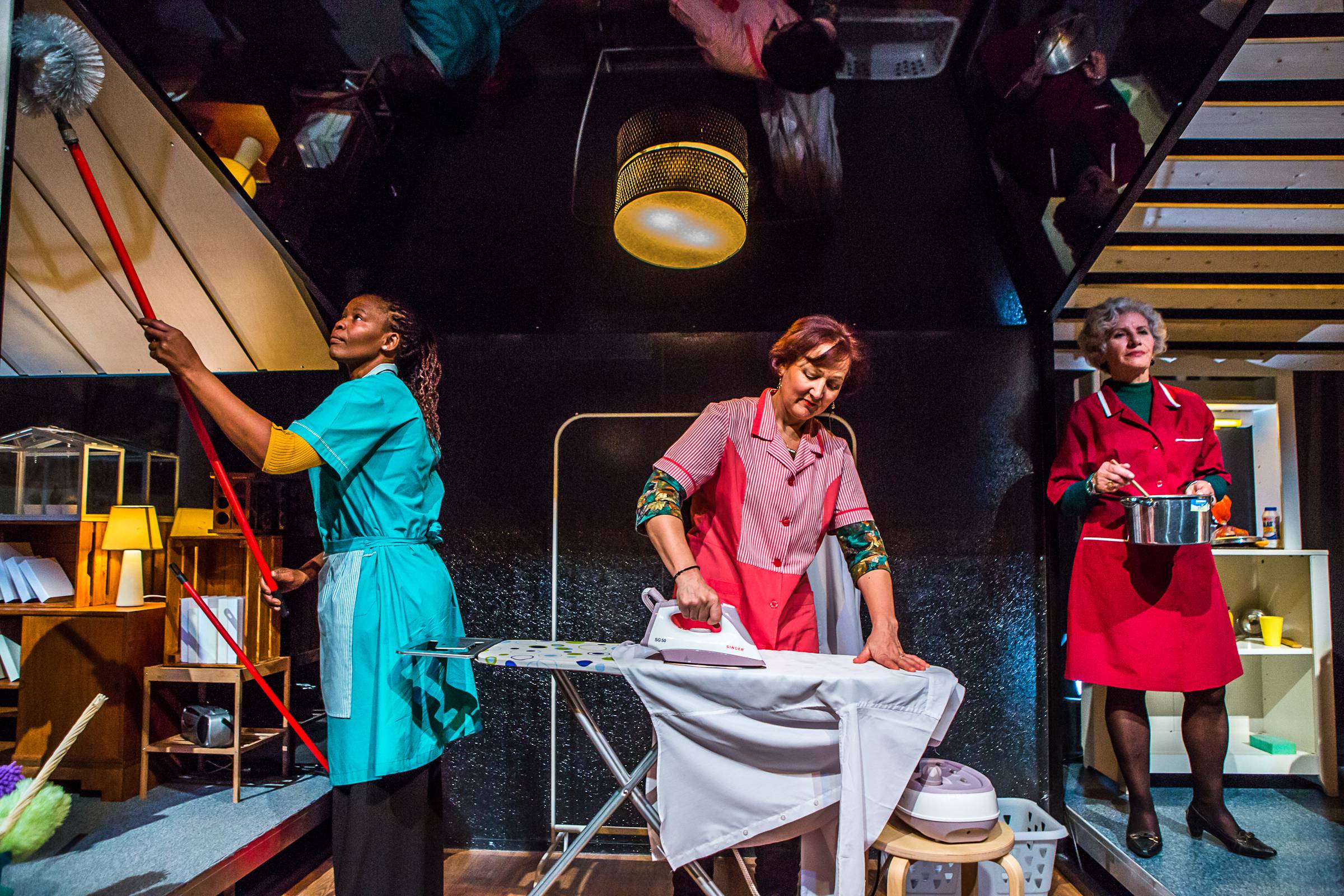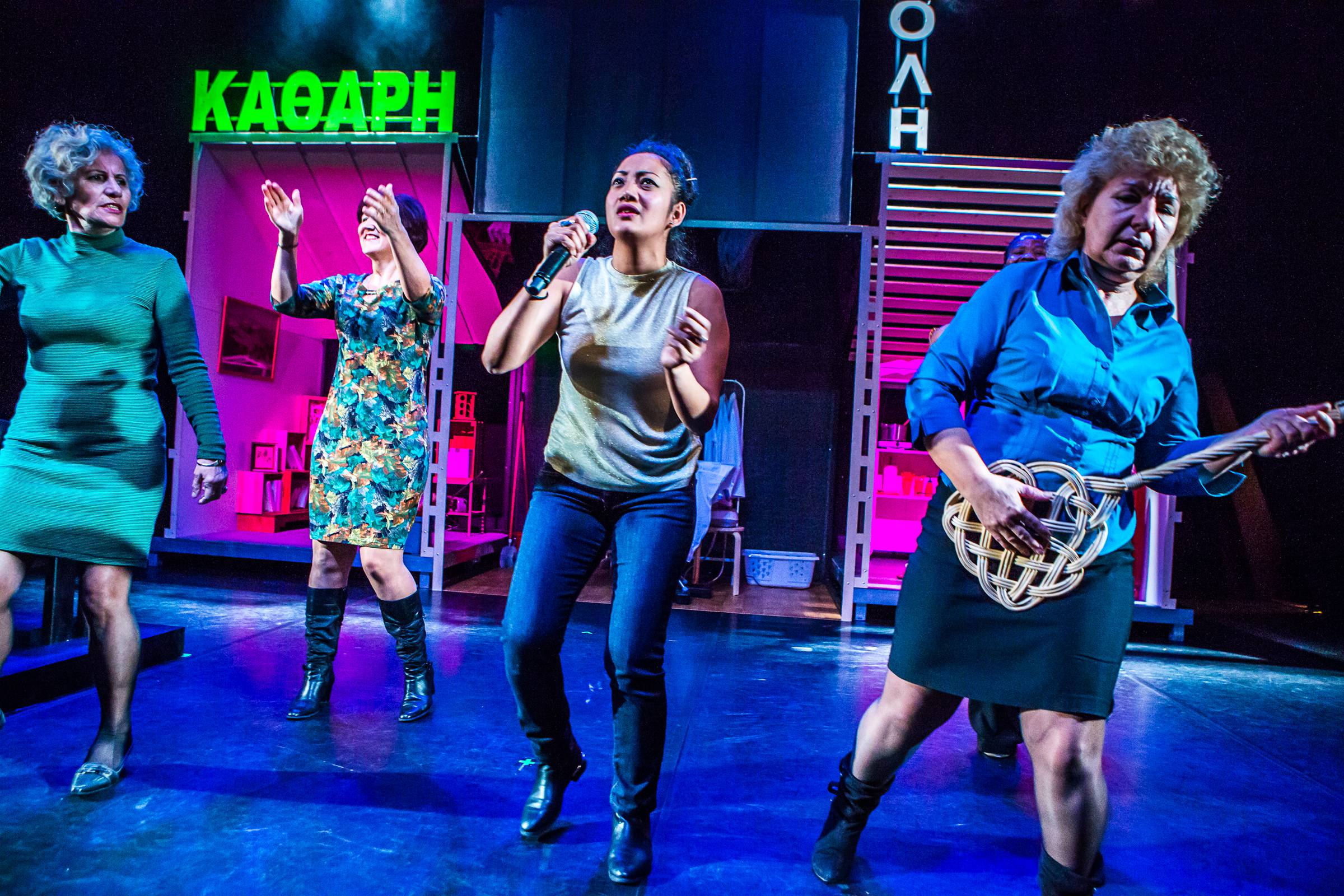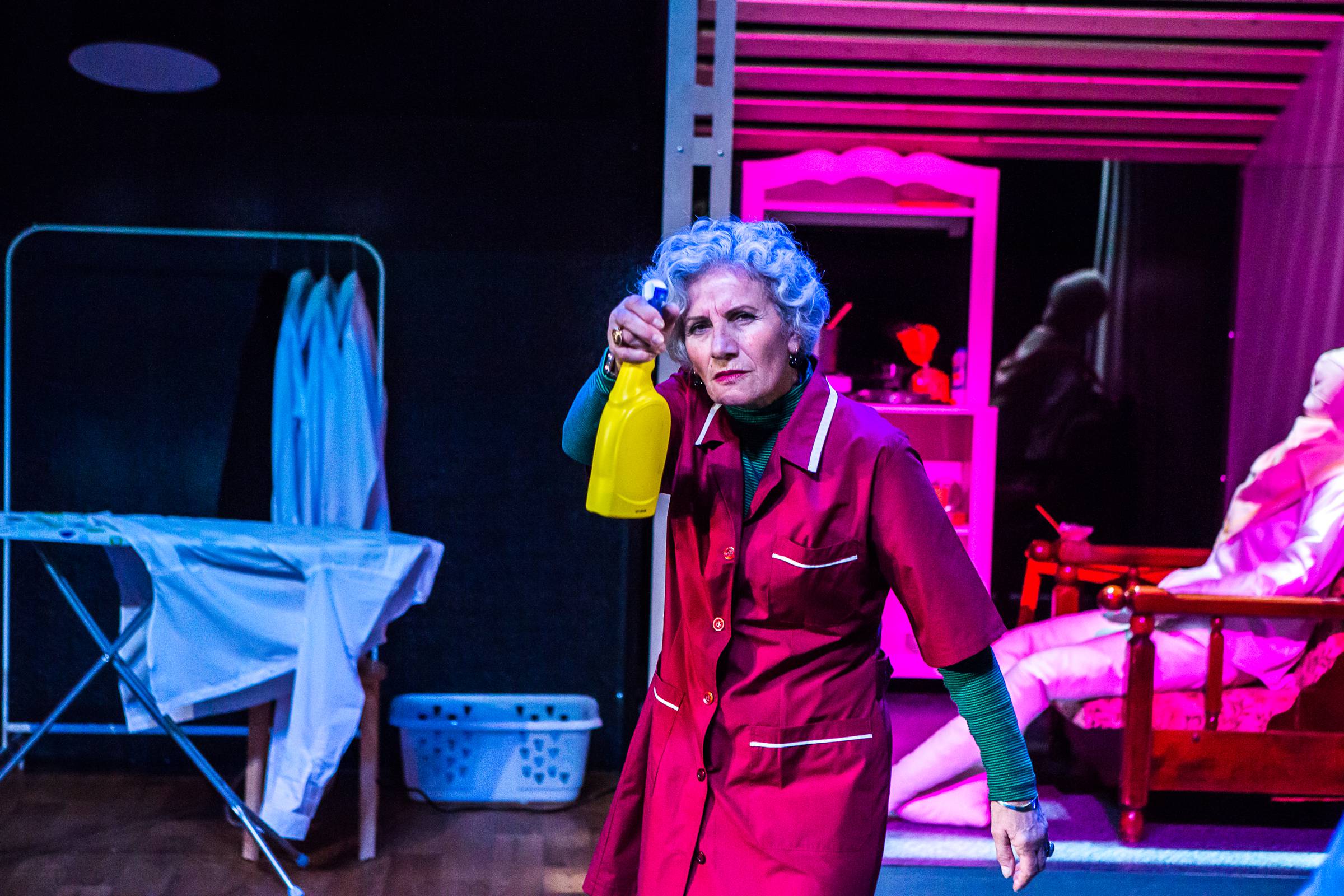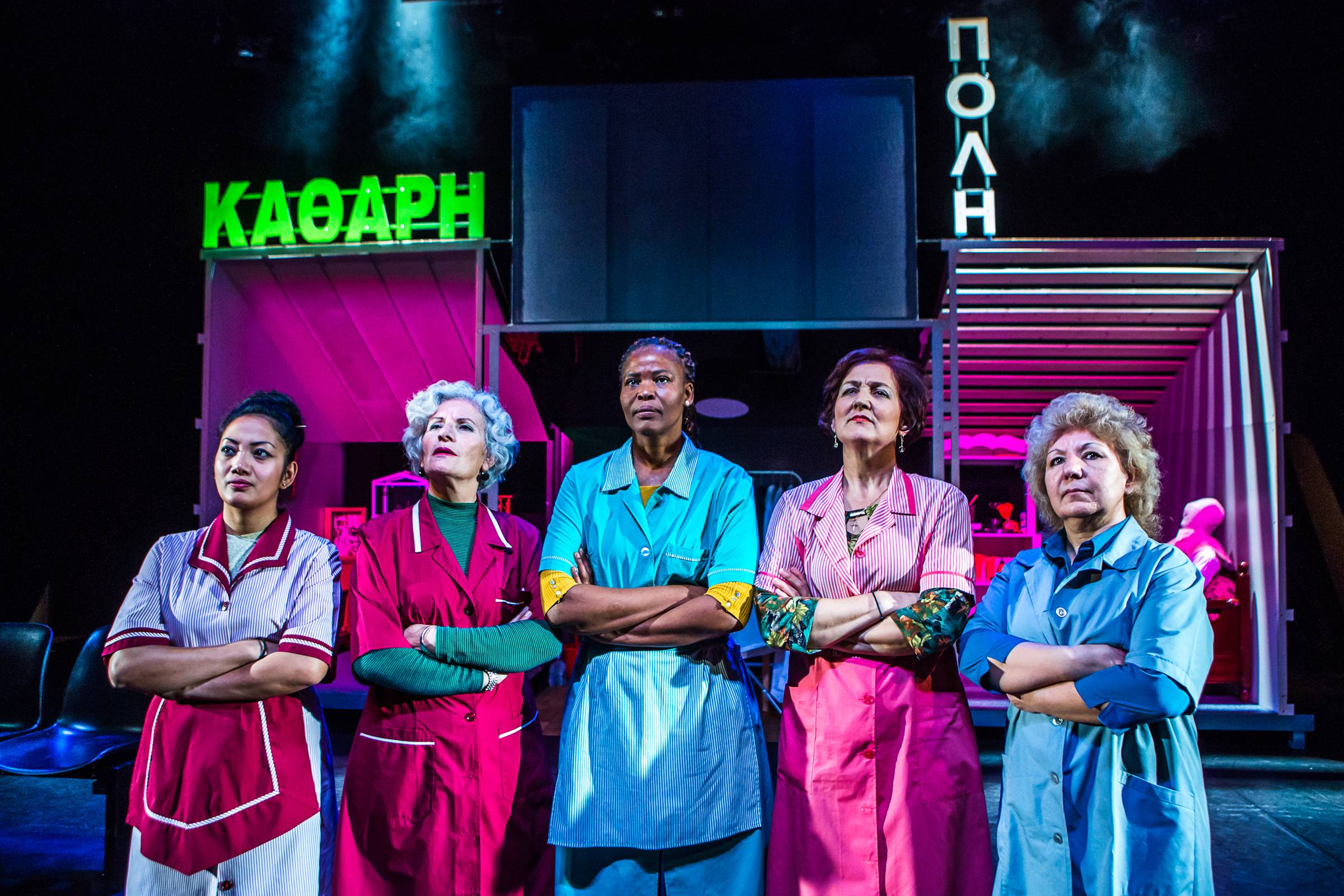
October 10, 2017, 8 p.m.-9:15 p.m., in the German Theatre Hall
Clean City
Research, text and directed by: Anestis Azas & Prodromos Tsinikoris –– Coproduction: Onassis Cultural Centre Athens (Greece) & Goethe Institut, in the context of EUROPOLY project
Dramaturgy: Margarita Tsomou –– Set Design and Costumes: Eleni Stroulia –– Assistant to the Set and Costume Designer: Zaira Falirea –– Lighting: Eliza Alexandropoulou –– Music: Panagiotis Manouilidis –– Video: Nikos Pastras –– Assistant Directors: Ioanna Valsamidou, Liana Taousiani –– Production Management: Vasilis Chrysanthopoulos –– Video appearance: Nelly Kambouri –– Puppet Construction: Yiannis Katranitsas –– With: Mabel Matchidiso Mosana, Rositsa Pandalieva, Fredalyn Resurreccion, Drita Shehi, Valentina Ursache –– Coproduction: Onassis Cultural Centre Athens & Goethe-Institut, in the context of EUROPOLY project –– EUROPOLY is a project of the Goethe-Institutes in Europe in cooperation with the Münchner Kammerspiele, Onassis Cultural Centre-Athens, Sirenos -Vilnius International Theatre Festival, Teatro Maria Matos Lisbon & Tiger Dublin Fringe –– Touring support: Onassis Cultural Centre Athens
Who cleans Athens? Why are the majority of Athens’ cleaners women and immigrants? Were they “born” cleaners? How do their CVs differ from yours? Maybe, in the end, we’re all subjects of history? And while we’re at it, why do we use the phrase “a clean sweep” to describe police operations intended to rid public spaces of “undesirables” (immigrants, the homeless, “deviants”)? Azas and Tsinikoris now explore the racism of “cleanliness” and “purity”, the perils of fascism, female immigration to Greece, and the identity of the “cleaning lady”. As a theatre of the real, Clean City traces and redefines stereotypes through the gaze and personal accounts of the real experts when it comes to cleanliness: the immigrant cleaning ladies of Athens. At the same time, Clean City explores the historical, philosophical and political extensions of “clean” as a normative concept which was adopted by the Nazis and became a central pillar of a racist ideology which sought to exterminate all “Others” to create a “pure” race.
“Theatre with the suffering is sometimes said to exploit human misery but Clean City does not get caught in that trap. We see what is happening on the stage as the self-empowerment of those women. And at the very end when they dance Zeibekiko which is traditionally reserved to Greek men, it becomes a sign of their emancipation: they flourish for they finally get attention and respect, and yes–their dignity is returned.” (taz.de)
Performance in Greek and Filipino with Romanian, German and English translations
Trailer
Photos

